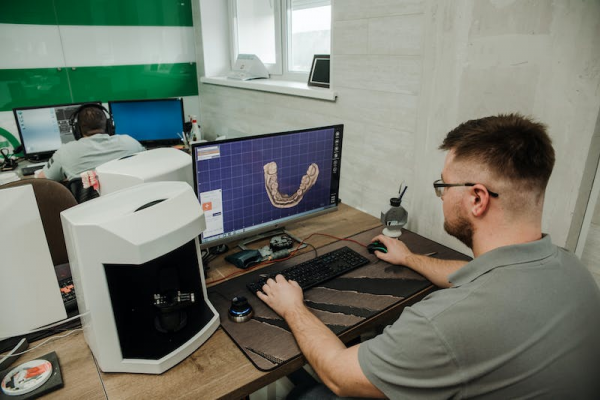
University of Bolton, Deane Road, Bolton. BL3 5AB
Tel:
Email:


“At the University of Bolton, we take great pride in providing a quality, supportive learning environment for our students.”
Professor George E Holmes DL | President & Vice Chancellor
“...tutors are very supportive and you’re not just a student ID number, at this university you are an individual with a name.”
Ellisse Vernon | BSc (Hons) Adult Nursing
Back to menu
Back to menu
Study with an Off-Campus Partner
Back to menu
Back to menu
University of Bolton, why we are the right choice
Location - Bolton, Greater Manchester

20/11/2023
The dental industry is experiencing a technological renaissance, where new innovations are reshaping traditional practices. However, with this rapid evolution comes a set of unique challenges.
This blog explores these hurdles and how modern dental practices are effectively overcoming them. Of course, this is something you can delve deeper into by taking a MSc Digital Dental Technology degree.
The dental field is constantly introduced to new technologies, from 3D imaging and printing to advanced digital diagnostics. One of the key challenges is staying abreast of these advancements.
Practices are responding with:
● Continuous learning and training - Dental professionals are dedicating time to ongoing education, ensuring they remain at the forefront of technological advancements
● Collaborating with tech experts - Many practices are partnering with technology experts and companies to integrate new tools seamlessly into their operations
Investing in the latest dental technology can be costly. By carefully evaluating the long-term benefits of new technologies against the initial investment, practices can make informed decisions. You’ll learn how to do this effectively by advancing your studies with a Master’s Degree.
With the adoption of digital records and online systems, data security has become paramount.
Dental tech experts must adopt strong cybersecurity measures to protect patient data, such as:
● Advanced encryption
● Regular security audits and risk assessments
● Two-factor authentication for system access
Staff must also be trained and updated on privacy laws and data protection regulations.

With this current technology boom, modern patients expect high-tech experiences. You need to know how to deliver them!
Education and patient experience can help here. Inform patients about new technologies and how they improve care. Also, use technology to make dental visits more comfortable and less intimidating.
The integration of new tools into daily workflows can be daunting. After all, people don’t tend to like change.
Consider phased technology implementation. Gradually introduce new technologies to allow both staff and patients to adapt.
It’s also wise to regularly solicit feedback from staff and patients to refine the use of technology.
Despite the challenges, modern dental practices are enthusiastically embracing technology, recognising its potential to revolutionise patient care. If you want to be part of this journey, taking the MSc Digital Dental Technology degree is a great next step.
By undertaking this course, you'll gain a comprehensive understanding of how to synergise concepts from various disciplines, such as engineering, materials science, and computer-aided design and manufacturing (CAD/CAM), to revolutionise dental technology.
This post-grad degree at the University of Bolton is structured to equip you with a solid foundation in research methodologies and critical analysis, preparing you for a potentially rewarding career in dental research and development.
For expert guidance, contact us at enquiries@bolton.ac.uk or call 01204 903903 and we’ll be happy to answer your questions.